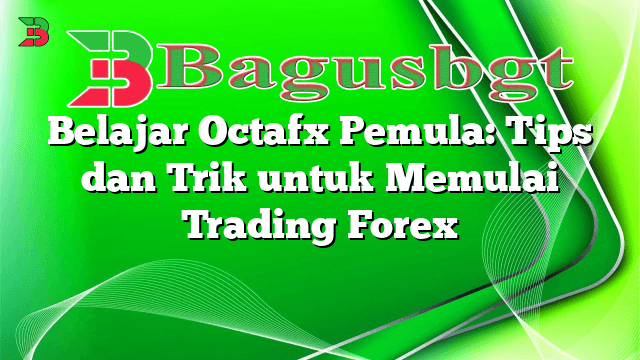Hello readers,
Welcome to our comprehensive guide on forex paper trading! In this article, we will delve into the concept of forex paper trading, its advantages and disadvantages, and provide detailed explanations on various aspects of this virtual trading practice. Whether you are a beginner or an experienced trader, this guide will equip you with valuable insights into forex paper trading.
1. Understanding Forex Paper Trading
Forex paper trading, also known as virtual trading or demo trading, is a practice that allows traders to simulate real trading scenarios without risking any actual money. It involves using virtual funds to execute trades in the live forex market, providing an opportunity to gain practical trading experience.
Traders can access a trading platform provided by forex brokers, which offers real-time market data and trading functionalities. The platform mirrors the actual trading environment, allowing users to analyze market trends, test trading strategies, and execute trades. However, all trades are executed using virtual funds, ensuring that no real money is at stake.
Forex paper trading serves as a valuable tool for both novice and experienced traders. Novice traders can use it to familiarize themselves with the dynamics of the forex market, understand different trading strategies, and practice risk management techniques. Experienced traders can utilize it to test new trading strategies, fine-tune their existing approaches, and assess the viability of new trading systems.
2. Advantages of Forex Paper Trading
Forex paper trading offers several advantages that make it an attractive practice for traders:
| Advantages | Explanation |
|---|---|
| 1. Risk-Free Environment | Forex paper trading eliminates the risk of losing real money, allowing traders to experiment with different strategies without financial consequences. |
| 2. Practical Learning Experience | Traders can gain practical experience by analyzing market trends, executing trades, and managing risk, which can enhance their trading skills. |
| 3. Strategy Testing | Traders can test various trading strategies in real-time market conditions, enabling them to assess the effectiveness of different approaches. |
| 4. Market Familiarity | Forex paper trading helps traders become familiar with the functionalities of trading platforms and the dynamics of the forex market. |
| 5. Confidence Building | Successful trades and positive outcomes in paper trading can boost traders’ confidence, preparing them for real-money trading. |
3. Disadvantages of Forex Paper Trading
While forex paper trading offers numerous benefits, it also has certain limitations:
| Disadvantages | Explanation |
|---|---|
| 1. Lack of Emotional Impact | As trades are executed using virtual funds, traders may not experience the emotional impact associated with real-money trading, such as fear and greed. |
| 2. Unrealistic Market Conditions | Since forex paper trading does not involve real money, market liquidity and execution speeds may differ from actual trading conditions. |
| 3. Overconfidence | Excessive success in paper trading can lead to overconfidence, causing traders to overlook the risks and challenges of real trading. |
| 4. Limited Psychological Preparation | Emotional and psychological factors play a significant role in real trading, but paper trading may not adequately prepare traders for the psychological challenges they may face. |
| 5. Trading Discrepancies | Due to differences in execution speeds and market conditions, trading outcomes in paper trading may not necessarily reflect actual trading results. |
4. Alternatives to Forex Paper Trading
While forex paper trading is a popular choice for virtual trading, there are alternative options available:
a) Trading Simulators: Trading simulators are software applications that replicate real trading environments. They provide an immersive experience by offering advanced charting tools, historical data, and real-time market simulations.
b) Backtesting: Backtesting involves testing trading strategies on historical market data to assess their performance. Traders can use specialized software or programming languages to automate the process and evaluate the profitability of their strategies.
c) Social Trading: Social trading platforms allow traders to follow and copy the trades of experienced traders. This approach enables beginners to learn from experts while still participating in the live trading environment.
5. Forex Paper Trading: A Detailed Overview
Forex paper trading provides users with a comprehensive experience that closely mirrors real trading. Here is a step-by-step breakdown of the process:
a) Choosing a Forex Broker: Select a reputable forex broker that offers a reliable and user-friendly trading platform for paper trading.
b) Opening a Demo Account: Sign up for a demo account on the chosen trading platform. This account will provide access to virtual funds and real-time market data.
c) Familiarizing with the Platform: Explore the functionalities of the trading platform, including charting tools, technical indicators, and order execution features.
d) Developing a Trading Strategy: Create a trading strategy based on your trading goals, risk tolerance, and market analysis. Define entry and exit points, risk management techniques, and position sizing.
e) Testing the Strategy: Execute trades based on your chosen strategy using virtual funds. Monitor the trades, analyze their outcomes, and make adjustments as necessary.
f) Evaluating Performance: Assess the performance of your trading strategy by analyzing metrics such as win rate, average profit/loss, and risk-reward ratio.
g) Learning from Mistakes: Identify any mistakes or weaknesses in your trading approach and use them as learning opportunities. Refine your strategy and continue practicing.
6. Frequently Asked Questions (FAQ)
Q: Can I make real money in forex paper trading?
A: No, forex paper trading involves virtual funds, and all profits and losses are simulated. It is solely a practice tool.
Q: How long should I practice forex paper trading?
A: The duration of practice depends on individual learning curves. It is advisable to practice until you consistently achieve positive results and feel confident in your trading abilities.
Q: Is forex paper trading suitable for beginners?
A: Yes, forex paper trading is an excellent way for beginners to learn about the forex market, trading strategies, and risk management techniques without risking real money.
Q: Can I switch to real-money trading after forex paper trading?
A: Yes, once you have gained sufficient experience and confidence through paper trading, you can transition to real-money trading. However, it is crucial to start with small amounts and gradually increase your trading capital.
Conclusion
In conclusion, forex paper trading serves as a valuable practice tool for traders of all skill levels. It offers a risk-free environment to gain practical trading experience, test strategies, and familiarize oneself with the complexities of the forex market. While it has its limitations, such as the absence of emotional impact and differences in execution conditions, forex paper trading remains an essential stepping stone towards successful real-money trading. So, seize the opportunity, open a demo account, and embark on your forex paper trading journey today!
 Bagus Banget Kumpulan Informasi terbaru dari berbagai sumber yang terpercaya
Bagus Banget Kumpulan Informasi terbaru dari berbagai sumber yang terpercaya


